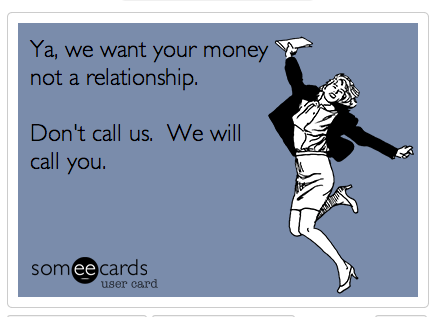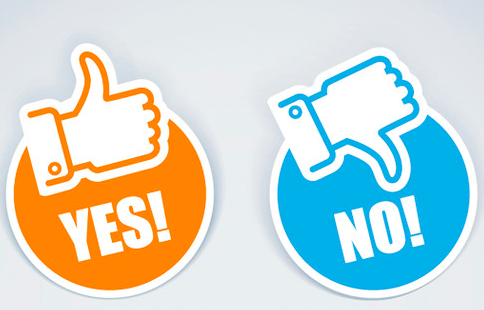How You Tell Your Prospects, Customers Stakeholders You Don’t Care About Them
Whether you work for a small business owner, a start-up, a not-for-profit or even a college or university, building and sustaining relationships is very important to your bottom line. With government agencies, there is an expectation that you regularly communicate with your tax payers and stakeholders to keep them informed. So, why is it is that so many of you continue to tell your prospects, customers, tax payers, etc. that you don’t care about them?
What Not to Do
With one simple gesture you say a lot in terms of what you think about the people who are the most important to you and your sustainability. The worse part is that it is totally avoidable. That simple gesture? Start unfollowing them on Twitter.
Case Study
I was recently working with a client, we will call them “M” and I was doing some follow-up training and training some new staff. As I was preparing to start the session, there was a conversation going on about what one of the new staffers was doing “to fix their Twitter” account. I listened with a lot of interest as I had not only originally helped them develop their strategy for using Twitter, but was now there to train the new staffers on how to use various management tools to make their lives easier when communicating via their social channels. The fix? Well, the fix was one of the worst things, in my opinion, that you can do. The staffer was unfollowing every single one of their Twitter followers. It was his opinion that there was no value having their Tweets come up in the organizations stream and it was a complete waste space and time.
My jaw dropped. This client had worked very hard to build relationships with its stakeholders and actually create a community. They had actually done a really good job. All that good work was just about to go up in smoke. The new staffers didn’t understand the nature of social media for business. The new staffers didn’t consult with anyone and decided to treat their organization’s social media like it was their own personal channel. I quickly considered how I was going to address this. Because I had worked with this client from the beginning and helped them develop their social strategy, policy and tactics, I knew how important it was for them. Additionally, and this is very important, because of the nature of their business they had now exposed themselves to a great deal of public criticism. Their community would not take kindly to this public dismissal.
I had to act quickly. I asked them to stop what they were doing immediately and enquired how many people/brands they had already unfollowed – the answer: 296. I then said, o.k. we are going to do our training a little differently than what was planned.
They of course didn’t realize the ramifications of what they were doing. They assumed that once you use social media, its all the same. They thought that how they do things with their own personal profiles and channels was the same in the business environment. It is not of course the same.
The Fix
So, what are the easy ways to avoid this? What are the ways to fix the situation? Here are some easy tips:
1. Train Employees BEFORE Allowing them to be the Voice of Your Brand
This could have been easily avoided with up front training. Not only do people need to understand social media and how to use it, but more importantly they need to understand your business, your brand value and how your brand operates.
Unfollowing is an easy mistake to make. We all make assumptions. In this case, a potentially serious mistake. It actually didn’t take long for some of their stakeholders to Tweet “Well, M just unfollowed me. I guess they don’t need my support after all.” We fixed this right away, by refollowing everyone and apologizing for the error.
2. Understanding the Social Nature of Social Media
Despite social media being more than a decade old now, many companies continue to treat it as just another traditional tool and/or tactic with the very focus of push communications. They fail to understand that there is a relationship that you need to build. It is about building trust, having interest in each other and communicating with each other. It is about sharing each other’s information. It is about being social.
3. Remember Your Prospects and Customers Are Human Beings
This seems like a no brainer, but it is a conversation that I have with some clients more often than not. In the case of M, the staffers weren’t thinking about the people on the other side of the Twitter handle. They thought of them just as a handle. They didn’t think about the message that was being sent.
In the training I delivered that day, we looked at real examples of brands that they were connected with and how they would feel if suddenly they were unfollowed. Between that conversation and the Tweets that started to come in from stakeholders, they quickly realized that they needed to better understand social media for business and just how easy it is to send the wrong message.
Thankfully we caught and fixed this one right away.
Want to learn more? Sign up for our newsletter at TaylorMade Solutions (insert “newsletter” into inquiry box)

Leave a Reply
Want to join the discussion?Feel free to contribute!